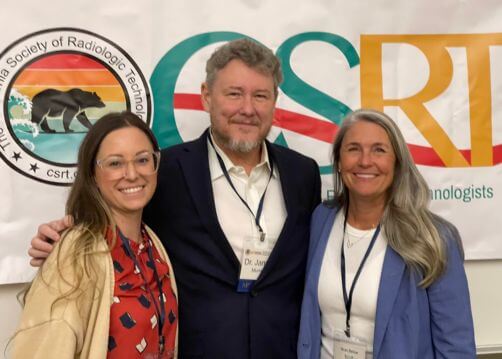Grants to Go Back to School, Part Two (Grants)
Date: December 4, 2023
If you’re headed back to school, it’s essential to understand your potential financial options. Ultimately, these will help augment your educational dreams. For the most part, college income sourcing can include scholarships, student loans, work-study programs, grants, family gifts, savings, and good old-fashioned hard work.
Discerning what financial aid to follow and which items to apply for can often be confusing with all the decisions and options. For this reason, this article attempts to dispel common questions regarding financial aid. As part of a series, this segment focuses on grants.
What is a Grant? What is a Scholarship?
First, let’s unpack scholarships and grants. What’s the ambiguity between what constitutes a scholarship and what makes up a grant? Both are free money, right? Each award may be used in academia, correct? While there are some similarities, there are also some apparent differences between the two.
Scholarships
To start, let’s understand the scholarship. Scholarships are award monies in support of something such as one’s education. Generally, scholarships are merit-based. Most often, scholarships are awarded based on academic skill or achievement.1 In other words, they are gifts for showing promise. Chiefly, one “earns” these gifts by performing well, being part of a demographic group, or distinguishing oneself for some reason or purpose.
For example, a high school quarterback, Tom, is awarded a four-year college scholarship to play ball. Tom’s scholarship likely comes with the proviso to a specific school for a certain dollar amount, as awarded for his past performances and future promise. With such a scholarship, Tom will more than likely spend four (4) years perfecting his free throw and likely not need to repay said scholarship. Go, Tom!
Grants
Conversely, grants are sums of money often bequeathed by a government or other organization for a particular purpose.1 Essentially, grants are free aid. By and large, grants are less merit-based than scholarships and generally are not niche-specific. Additionally, grants are often provided by a large governing body. For the most part, grants are dispersed to an organization1 or given directly to an individual.
A scholarship, such as The Asparagus Club Scholarship, is generally conferred for some type of merit or for belonging to a group. (Yes, that’s an actual scholarship!) To have a leg up for the Thomas K. Zaucha Asparagus Club Scholar award, one should have a recommendation from a professional grocer and be in the grocery business. However, this is not so with a grant. By contrast, the overall defining criteria for a grant award is most often needed.
For example, Suzy is the first person in her family to wish to attend college. Suzie’s family lives below the poverty line, and she doesn’t foresee any scholarships coming her way. However, Suzie applied for a Pell Grant to help defray her college expenses. Moreover, the Pell Grant is awarded for her outright need rather than her performance.
Generally, this grant won’t require repayment as long as Suzy doesn’t withdraw from courses or change her enrollment status.2 Therefore, we can safely see Suzy attend college, have less debt when she’s finished, and make her family proud all at the same time. (Awww. Doesn’t this sound like sentiments on a graduation card?)
What are the Different Types of Grants?
While we’ve unpacked some differences between grants and scholarships, those aren’t the only dissimilarities. There are also distinctions among grants. Overall, educational grants available to students include four different areas. These are federal, state, institutional, and private grants.
1. Federal Grants
The first is the federal grant. Essentially, the U.S. government provides federal grants directly to students.3 Generally, grant funding depends on criteria including overall need, the cost of attending a chosen institution, and whether one is registered full or part-time.
In brief, the four main federal grants available to U.S. citizens entering higher education are the Pell Grant, the Federal Supplemental Education Opportunity Grant (FSEOG), the Iraq and Afghanistan Service Grant, and the Teacher Education Assistance for College and Higher Education Grant (TEACH).
Generally speaking, U.S. government grants are dispersed for the following reasons, below.
- Pell Grant–This is awarded based on financial need and is available to undergraduate students pursuing their first bachelor’s degree.
- Federal Supplemental Education Opportunity Grant (FSEOG)–This is awarded to undergraduate students who demonstrate exceptional financial need.3
- Iraq and Afghanistan Service Grant–Designated for students whose parent or guardian died as a result of military deployment to Iraq or Afghanistan after the events of 9/11.3
- Teacher Education Assistance for College and Higher Education Grant (TEACH)–For students who agree to teach in a high-need field in an area serving low-income students.3 This remains a grant as long as one fulfills their obligations.4
Note: To be considered for the above grants, one must fully complete the Free Application for Federal Student Aid (FAFSA).3
2. State Grants
Second is the state grant. States fund and disperse grants on their initiative or with the federal government. Moreover, the federal government may fund a specific state project or college with a block grant. Funds can go directly to students, or they may go through colleges and universities for dispersal.5 Of note, almost every state educational entity has at least one or more state grants available to its residents. In real-time, most schools have multiple student-state aid programs to help offset expenses and mitigate federal aid.
State grants are awarded based on multiple factors, including financial need, academic achievement, or the course of study one plans to pursue. That said, eligibility for state grants is often restricted to residents attending an in-state college.”5
One example of a state-based grant is the Cal Grant. Whereas, the California Chafee Grant for Foster Youth is funded by the state, with assistance from the Federal Government.6 Commonly, states offer grants for adult learners, such as those looking to re-enter the workforce or change career paths.
3. Institutional Grants
A third type of grant is the institutional grant. Institutional grants are funds from the college or university itself.7 Many colleges and universities provide institutional grants to help defray expenses. These grants may be merit- or need-based, or some combination of both. Sometimes they may be granted as a draw just for choosing the institution. I.e., a college offers a grant for all incoming first-year students, with zero criteria except the student enrolls, breathes, and takes classes. (Nice!)
With the institutional grant, the school disperses funds through its financial aid department, using its processes and eligibility criteria. Ultimately, eligibility criteria for institutional grants can vary widely depending on the institution and its values.
4. Private Grants
Fourth, organizations, foundations, professional clubs, and businesses offer private grants. These grants may be available to students in specific fields of study, certain demographic groups, or individuals facing unique circumstances.
Generally, private grants come from clubs or organizations with a particular vision and purpose for forwarding the group’s values. Typically, these grants are specific and often reflect the organizations funding them. For instance, the American Association of Cereal Chemists International funds graduate fellowships to graduate students pursuing—wait for it—those conducting grain-based food science and technology research!8
Conducting thorough research, utilizing online search engines, and contacting organizations, businesses, and civic clubs in your community can go a long way in helping you discover private grants. Moreover, there’s nothing better than good old-fashioned networking for connecting you with out-of-the-way private grant sources.
Conclusion
Grants are available to assist those interested in returning to school. From federal and state grants to institutional and private grants, funding opportunities exist for those with various financial situations, academic achievements, and individualized career goals. Whether making the transition to college for the first time or returning to school after years away, you owe it to yourself to explore all possible funding options. Doing so will take due diligence and hard work.
Completing the necessary applications, communicating with financial aid officers, and networking with relevant organizations will maximize your chances of securing financial support. Remember, pursuing your educational dream takes determination. Finally, keep in mind that it’s not a sprint but a marathon. Achieving your goals is done by one class and one dollar at a time.~
See us about financial aid today.
Written by Cindy R. Chamberlin.
Citations
1^a, b, c —. “Oxford Languages.” Oxford Languages, Oxford University Press, 2023. (Accessed November 21, 2023.)
2 Farrington, Robert. “Do You Have to Pay Back Grants? (Usually No, But…).” The College Investor. January 12, 2018. (Accessed November 28, 2023.)
3^a, b, c, d, e “What Is a Grant for College?” College Ave, College Ave. Student Loans, November 1, 2023. (Accessed November 20, 2023.)
4 “Federal Student Aid.” Studentaid.gov, U.S. Department of Education, 2020. (Accessed November 21, 2023.)
5^a, b “State Financial Aid Programs.” Www.nasfaa.org, National Association of Student Financial Aid Administrators. (Accessed November 21, 2023.)
6 “California College Grants: Free School Grants for Students in CA.” Www.collegescholarships.org. (Accessed November 29, 2023.)
7 Brillembourg, Alfredo. “How to Prep Institutional Grants for Prospective Students.” Www.meadowfi.com, Meadow. January 4, 2023. (Accessed November 21, 2023.)
8 “Unique Grants – Scholarships.com.” Www.scholarships.com. (Accessed November 21, 2023.)











